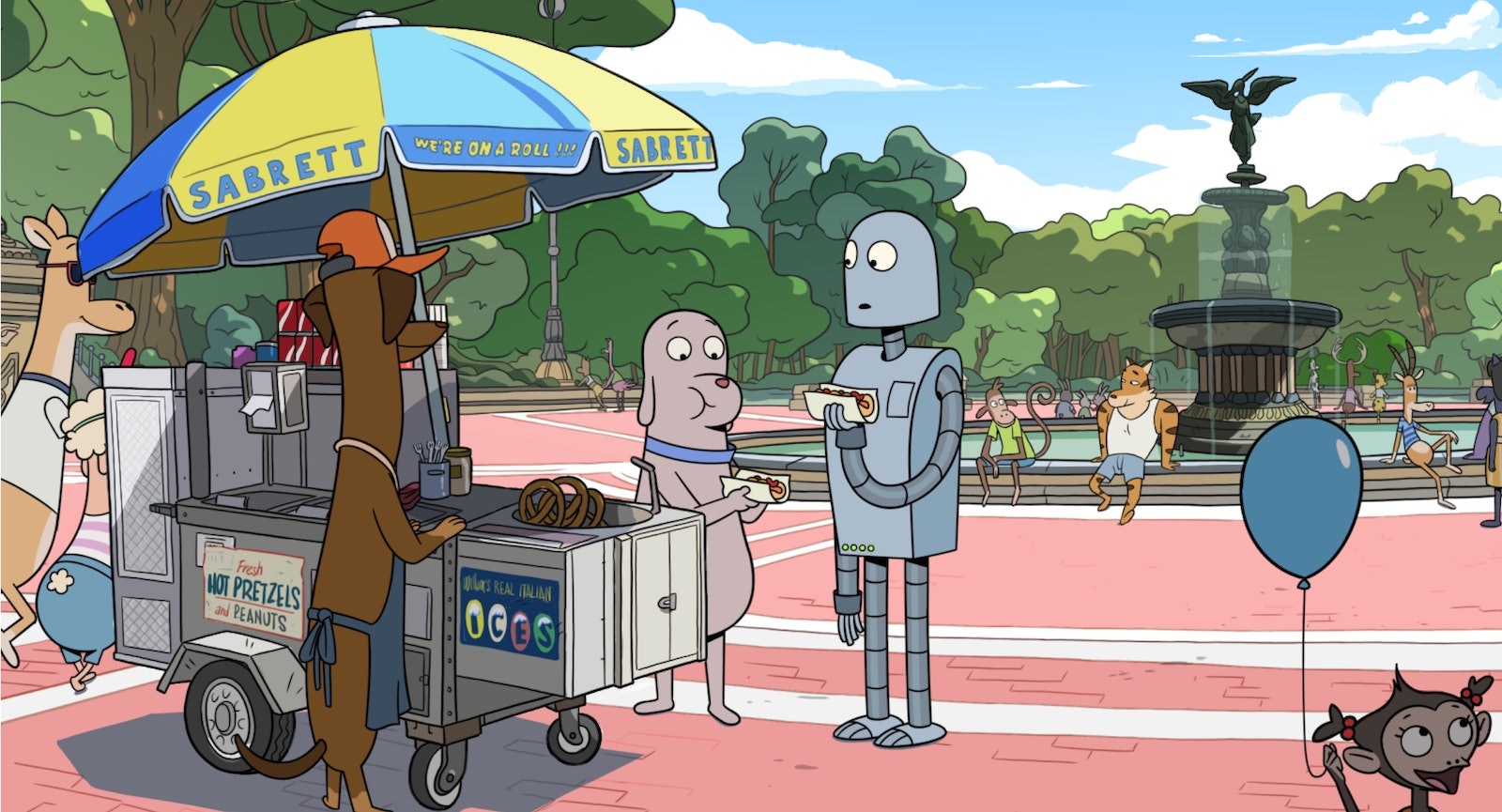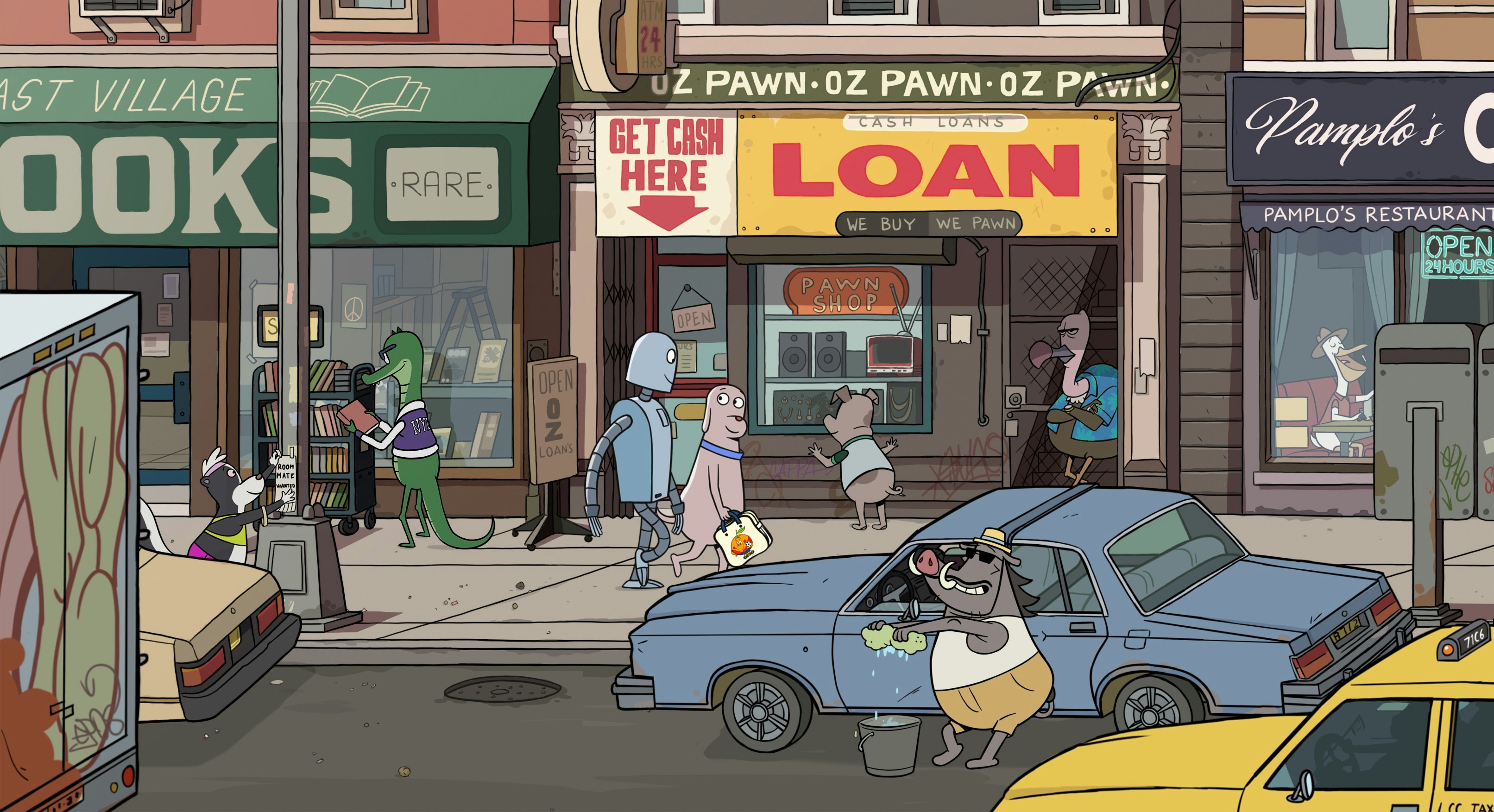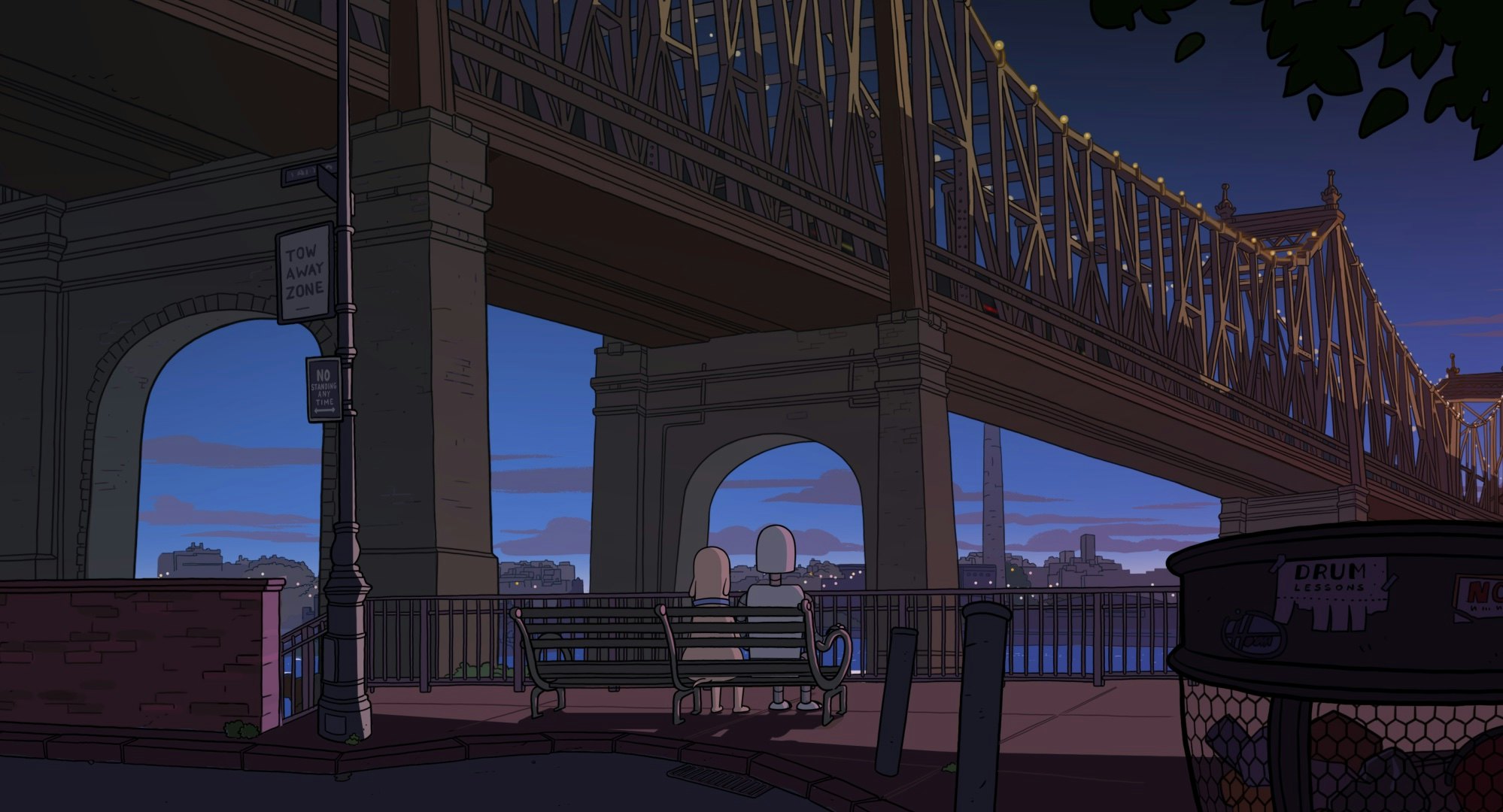
Among the many wonderful things about Pablo Berger’s Robot Dreams is one that particularly hit home for this reviewer: its evocation of 1980s New York City. Movies flashing back to that time and place often emphasize its dark, crime-ridden side (which certainly did exist), but having spent four years of college in lower Manhattan during the latter part of the decade, I can tell you it also had its great joys. Many of them are explored and evoked over the course of this animated fable, which uses the city as a backdrop for a very human story told with an animal and mechanical cast.
Robot Dreams is based on the 2007 graphic novel by Sara Varon, whose surname is shared with the movie’s canine protagonist. Dog Varon lives in a little apartment on East 13th Street, in a metropolis teeming with anthropomorphized fauna of every kind. His is a humdrum life whose days end with microwaved mac-and-cheese meals, and he needs a friend. A TV commercial inspires him to order one: the Amica 2000 robot, some assembly required. There are many like it, but this one is Dog’s, and the two bond immediately. Robot doesn’t know his own strength, which leads to a few awkward moments at first, but Dog is patient as the two enjoy such pastimes as rollerblading in Central Park to Earth, Wind & Fire’s “September,” which becomes the film’s perfectly chosen anthem.
As the two pals jaunt through the many streets and spaces of the Big Apple, Robot Dreams is alive with countless details of behavior, action, and environment that bring the story to full life without a word of dialogue. Employing a clean-line 2D animation style echoing its printed source, it’s a joy to look at, and rife with fun choices regarding its bestial population (the president seen on a newspaper front page in this Reagan-era story is a chimpanzee, a hot dog cart is operated by a wiener dog, etc.). Then there are the little references that those of us of a certain age will especially appreciate (Gayla kites!), and Berger occasionally drops in playful homages to past classics ranging from Jaws to Buster Keaton’s Steamboat Bill, Jr.

The delight of Robot Dreams’ first act gives way to a more melancholy tone after Dog and Robot take a trip to Ocean Beach, and circumstances lead the two to become separated. Robot becomes stranded where Dog cannot reach him, and it’s going to be months before Dog has the next opportunity to see his beloved friend. It is here that the film’s title comes into play, as Robot, alone and unable to move, dreams (or daydreams?) about their reunion. Meanwhile, Dog tries to fill the gap in his life left by Robot’s absence, as he waits out the time before they can be together again. For both of them, there are moments of grace, of respites from their loneliness, but they aren’t lasting ones — not enduring like the bond they shared together.
Watching Robot Dreams, your heart will root for Dog and Robot to find their happy ending, even as the world around them seems to have other plans. Another wonderful thing about the film, however, is its belief that those other plans aren’t necessarily always bad things, that the twists and turns life takes can lead to discoveries and individuals who will give it new meaning. As heartbreaking as Robot Dreams sometimes is, it’s deeply optimistic at its core, and the story’s most tragic development nonetheless puts it on a course toward a more fortunate outcome. Whether or not Dog and Robot are ever brought back together, the movie conveys the feeling that they will always be united by the time they’ve already spent together.

Right down to its lovely final moments, Robot Dreams’ wonderfully expressive animation captures the hearts and souls of not just its two “leads,” but the various characters who come into and out of their lives, impacting them in ways large and small. Through it all, in its special, beautifully visualized way, Robot Dreams is about the enduring power of friendship, and the bonds we forge that cannot be severed by time or distance. Life goes on — that’s inevitable — but our experiences don’t lose their meaning just because they’ve receded into our pasts.
A quote often misattributed to Dr. Seuss goes, “Don’t cry because it’s over. Smile because it happened.” Robot Dreams, which can make you smile even as you’re tearing up, is a celebration of that sentiment.







